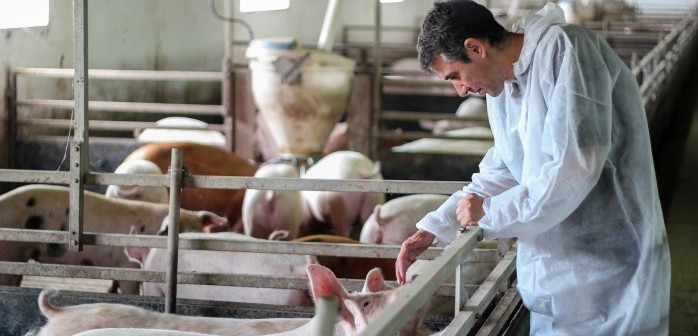The NPA and the Pig Veterinary Society (PVS) have written to the UK’s Chief Veterinary Officer expressing ‘extreme concern’ at proposals from Brussels to effectively ban group prophylactic use of antibiotics.
The proposal is included in a Regulation of the European Parliament and of the Council on veterinary medicinal products, which is currently in the final stages of negotiation in Brussels.
The concern stems from text added at a late stage of the process, which states:
“Antimicrobial medicinal products shall not be used for prophylaxis unless, in exceptional cases for the administration to an individual animal or a restricted number of animals when the risk of an infection or of an infectious disease is very high and the consequences are likely to be severe. In such cases the use of antibiotic medicinal products for prophylaxis shall be limited to the administration to individual animal only, under the conditions laid down in the first sentence.”
In a letter to CVO, Christine Middlemiss, NPA chairman Richard Lister and PVS president Duncan Berkshire attach an NPA briefing setting out why both associations believe the proposal is unnecessary and could compromise pig health.
The document expresses full supports for the proposal that antimicrobial medicinal products should ‘not be applied routinely nor used to compensate for poor hygiene, or inadequate animal husbandry or lack of care or to compensate for poor farm management’. It also agrees that prophylaxis should not be deployed unless, in ‘exceptional cases for the administration to an individual animal or a restricted number of animals when the risk of an infection or of an infectious disease is very high and the consequences are likely to be severe’.
But it says this should be sufficient. Going beyond this to limit prophylaxis to individual animals is ‘unnecessary and risks seriously impacting pig health’. “There is a widely held and justifiable belief, in both human and veterinary medicine, that controlled intervention to prevent the outbreak and spread of disease based on sound professional examination and advice is better than cure,” the document adds.
It reiterates that the use of antibiotics in animals should rightly be restricted to avoid unnecessary exposure of pathogens to antibiotics to which they may develop resistance. It highlights how the 50% reduction in antibiotic usage in the pig sector in the space of two years has been achieved primarily by moving away from routine prophylaxis.
But it stresses: “However, there are a number of circumstances where targeted prophylaxis is the best course of action to protect animal health and welfare and, given that pigs are housed in groups, population medicine requires that group prophylaxis is used in such circumstances.”
The document highlights the ‘absurdity’ of expecting vets to ‘stand by’ where a pathogen is known to be present on a farm and there is a high likelihood of pigs becoming infected, and only be allowed prescribe antibiotics once those pigs show signs of clinical disease.
Providing the vet prescribes antibiotics according to good stewardship principles, the risk of development of antibiotic resistance should be minimal, it concludes.




